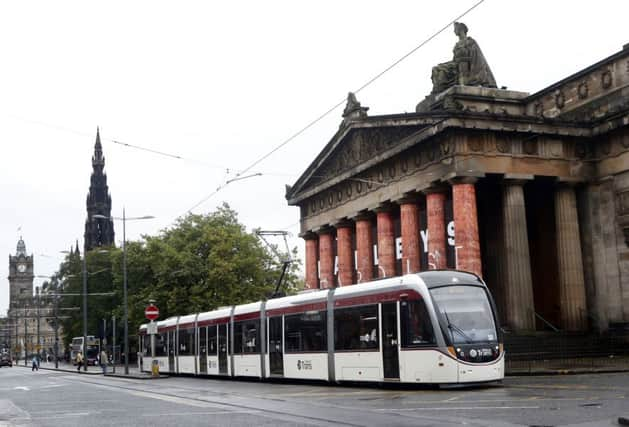Alastair Dalton: The truth will out in Edinburgh tram inquiry


The former judge stressed that he won’t be able to find anyone guilty of an offence, but I bet he’ll make it pretty clear where the faults lie in this fiasco, which has left the capital with a fraction of the tram system it expected at a hugely greater cost and years later than planned.
Evidence of Lord Hardie’s no-nonsense approach came during Tuesday’s hearing when the city council – which was responsible for the scheme – attempted to use an 1879 court case to help justify keeping details of some current litigation over the project secret.
Advertisement
Hide AdAdvertisement
Hide AdAfter listening for a few minutes to the council QC’s arguments for the information to be kept under wraps, Lord Hardie simply said: “I think we will just circulate the documents and carry on.”
The chairman went on to effectively fire a broadside across the bows of the council over the way it had decided that its now-moribund tram development company should not be separately represented at the inquiry.
The activities of Tie – the former Transport Initiatives Edinburgh – are likely to be at the heart of what went wrong with the project, so Lord Hardie will no doubt be determined that nothing impedes him from finding out exactly what it got up to.
His chief concern was about potential hurdles which could arise from conflicts of interest emerging, such as between the council and Tie.
In an area that could get very complicated, some of the major players in the project share law firms, such as the council and the main tram line contractor, following the merger of two law firms.
Lord Hardie told the council it might be “prudent” to re-consider its Tie decision by putting a “more balanced report” to councillors than the one they had previously been given.
Just to underline the point, he went on to impose a “deadline” – clearly aimed at the local authority – for all the key players to report back on potential conflicts of interest, setting it, rather dramatically, for noon on 27 November.
Most of the preliminary hearing was taken up with such legal debate, but it seemed the chairman was deftly moving to head off potential obstacles to the future progress of the inquiry.
Advertisement
Hide AdAdvertisement
Hide AdLord Hardie also sought to include, at every turn, those members of the public who had come along to watch the proceedings – even though the 20 people who had tuned up were outnumbered by grey-suited lawyers in the hearing room.
He helpfully clarified complicated terms, and gave a detailed explanation of why he was seeking the information from the city council which it sought to withhold. Stressing his independence from the Scottish Government, Lord Hardie said: “My obligations are to the public as a whole.”
The hearings promise to be very user-friendly, with large screens to be deployed to display documents being referred to during proceedings. That will be a world away from the often arcane language and ritual of the courtroom.
Lord Hardie used an anecdote about a friend’s teenage daughter wanting him to move the West End tram stop nearer her favourite shops, to illustrate he could not stray beyond the inquiry’s scope.
He opened the hearing bang on time and it finished, as scheduled, right on the two-hour mark.
Such efficiency will be needed as the inquiry gets to grips with more than 65 aspects to its investigation, grouped in 12 areas, after sifting through six million documents from a potential pool of 500 million. The next hearing may not be for a while, but it promises to be worth the wait.
• Inside Transport will return on 30 October.